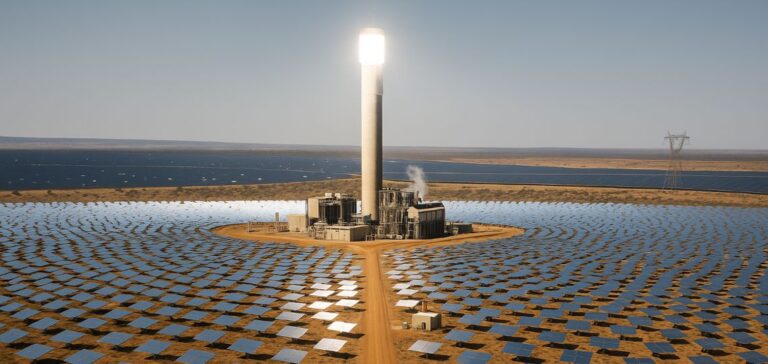China is currently revising its energy strategy in Africa in response to rapidly changing economic and geopolitical contexts. Long driven by substantial loans to finance large-scale energy infrastructure, the Chinese approach is undergoing a major transformation. The high debt levels of emerging countries, exacerbated by recent economic crises, are now pushing Beijing to prioritise more modest commercial investments and targeted exports in the clean energy sector.
A major strategic shift
Since 2021, Chinese financial institutions have significantly reduced loans for large-scale infrastructure projects, now favouring more precise and less risky commercial investments. This trend accompanies a general decline in lending, prompting Beijing to explore alternative financing mechanisms, including public-private partnerships (PPPs), despite limited experience in the field.
This strategic shift also responds to a growing demand from emerging countries for more economically viable projects, prioritising equity and local industrial development over additional debt. As such, while China remains a central player in African energy markets, it will need to demonstrate its ability to evolve towards more diversified economic models.
Challenges posed by the West
European and American ambitions, through the Global Gateway initiative and the Partnership for Global Infrastructure and Investment (PGII), place Beijing under increasing competitive pressure. Western policymakers, keen to counter Chinese influence in Africa, are ramping up investment in sustainable energy infrastructure, requiring Beijing to clarify its own “de-risking” strategies and partnership modalities.
China continues to benefit from strong trade ties with key countries such as Kenya and South Africa, but must now navigate African policies increasingly geared towards green and local industrialisation. These policies could restrict, or even compete with, the expansion of Chinese clean technology exports to the African continent.
Geopolitics and economic uncertainties
Geopolitics also plays a key role in Chinese strategic decisions. With the United States reducing its financial support for Africa’s energy transition, Beijing may be tempted to fill the gap, but decisions are increasingly influenced by the strength of bilateral political relationships rather than purely economic or energy concerns.
However, this situation also carries risks: the American resurgence in favour of fossil fuels could reverse some of the progress made in Africa towards a cleaner energy transition. Protectionist policies observed in the United States and Europe could further encourage African countries to adopt strategies focused on promoting local value chains, potentially limiting China’s ambitions in technology exports.
Faced with these multiple challenges, China will need to continuously adapt its African strategy to remain competitive and relevant in a rapidly evolving market.






















